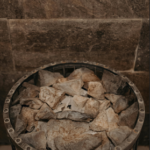Mike Wolfe’s life work goes far beyond reality TV it’s become a full-blown passion project dedicated to rescuing and celebrating America’s forgotten treasures. Best known as the charismatic co-host of History Channel’s hit series American Pickers, Wolfe long ago turned his childhood hobby of scouring barns and junkyards into a mission. At the heart of what fans call the “Mike Wolfe passion project” are efforts that include:
-
Restoring and riding vintage motorcycles and vehicles, treating them as rolling pieces of history.
-
Curating and preserving antique Americana from gas pumps and signs to furniture and relics of bygone eras.
-
Revitalizing historic Main Street buildings in small towns, giving old storefronts new life.
-
Boosting community pride and heritage tourism, showing that local history and architecture have real value.
These interwoven projects form Wolfe’s personal crusade: preserving the stories and craftsmanship of the past while breathing new life into them. Let’s explore how his journey from a bike-loving kid in the Midwest became a multifaceted passion that inspires collectors and small towns alike.
Roots of a Picker: Mike Wolfe’s Early Years
Mike Wolfe’s story began in the working class neighborhoods of Illinois and Iowa, long before American Pickers made him famous. Born in Joliet, Illinois, in 1964 and raised by a single mother in Bettendorf, Iowa, Wolfe grew up surrounded by the odds and ends of everyday Americana. As a child, he learned early that one person’s trash could be another’s treasure. Walking home from school through alleys and fields, young Mike scavenged old bicycles, toys, and furniture. In one famous early memory, he found a discarded girl’s bicycle in the trash on garbage day, patched it up, and sold it for five dollars an experience that hooked him on the thrill of discovery.
By his teens, Wolfe was already a seasoned “picker,” combing through junkyards and garages for rare finds. He began trading and selling items to neighbors, eventually turning this hobby into a living. In 2000 he opened his first antique store, Antique Archaeology, in LeClaire, Iowa a quaint Mississippi River town where he could sell the relics he collected on the road. The shop specialized in mid-century Americana and vintage furnishings, showcasing Wolfe’s growing eye for history. He later opened a second Antique Archaeology location in Nashville, Tennessee, to bring those same treasures to a southern audience.
Everything changed when Wolfe pitched a TV show to the History Channel. After years of persistence, American Pickers premiered in 2010 with Wolfe at the wheel, traveling the country in search of “rusty gold.” The show’s success turned Mike Wolfe into a household name among fans of antiques and adventure. Yet even with fame and cameras, Wolfe remained true to his roots: he wasn’t chasing stardom for its own sake, but using the platform to expand his picking adventures. Behind the scenes he continued hitting dusty barns and backroads driven by the same curiosity that fueled him as a kid.
Hunting Antiquities: Wolfe’s Collection and Curation
Long before TV cameras rolled, Wolfe had developed an encyclopedic knowledge of American antiques. Even today, one of the central pillars of Wolfe’s passion project is antique hunting and preservation. He and his team crisscross the nation in search of forgotten relics: vintage advertising signs, old license plates, farm tools, industrial equipment, furniture, and other artifacts from the 19th and 20th centuries. When they find something valuable or unique, Wolfe buys it on the spot often from local collectors or families cleaning out an old homestead.
Inside Wolfe’s LeClaire warehouse and Nashville store, the trove of items is staggering. Patrons of Antique Archaeology can browse through rows of weathered gas pumps, neon diner signs, enamelware, rustic furniture, and countless other pieces rescued from obscurity. Each item on the floor has a story: perhaps it stood outside a gristmill for decades, or served ice cream from a road-side stand in the 1950s. Wolfe treats these objects as historical artifacts rather than mere decorations. He carefully catalogs and sometimes restores them, but he often prefers to leave a patina of age. In interviews he has said he will buy “anything [he] can sell,” but adds that the real value comes from the story behind it, not just the resale price.
Beyond selling in his stores, Wolfe sometimes makes sure special items go into public hands. For example, when an antique sign or artifact has cultural significance – like a civil rights era lunch counter or a town landmark he has been known to donate it or work with a museum or preservation group to keep it on display. Wolfe’s philosophy is clear: these objects belong to the public story of small-town America, and preserving them can educate people about local heritage. His passion project in antiques isn’t about hoarding wealth; it’s about curating a living archive of Americana.
Vintage Motorcycles: Riding Through History
If antiques feed Mike Wolfe’s soul, motorcycles excite his heart. Bikes are a lifelong passion for Wolfe, and vintage motorcycle restoration is a standout thread in his projects. “Our biggest passion is old motorcycles,” Wolfe once said in an interview. He rides this passion hard, collecting scores of antique motorcycles everything from early Harley-Davidsons to rare Indian board-track racers. He’s amassed a private collection of dozens of bikes dating from the early 1900s through the 1950s. Some are displayed behind glass at Antique Archaeology; many more are tucked away in his workshop barn in Iowa.
Wolfe doesn’t just park these classics on shelves he brings many of them back to life. He rolls them out onto the road, infusing abandoned engines with fresh charge and spark. On any given day you might catch sight of Wolfe cruising down a country road on a freshly restored 1930s Harley or Indian. He jokes that strangers will often run alongside him on their cars, incredulous that “that thing runs!” after decades in a barn. This hands-on work is part of the Mike Wolfe passion project’s authenticity he’s not merely a collector, but a restorer and rider.
His love for motorcycles goes deep. As a teenager Wolfe bought his first bike secretly and even worked for two years at the National Motorcycle Museum in Ohio, hunting for early American classics. Over time he gathered treasures like a 1913 Indian Twin, a 1941 Harley Knucklehead, and a 1948 Harley Panhead. In 2012 he became an official ambassador for Indian Motorcycles, reflecting his status in the biker community. Through events, talks, and social media, Wolfe often discusses bikes as symbols of freedom and creativity. In many ways, he sees an old motorcycle as “rolling art” a machine that embodies American ingenuity and adventure.
Restoring a motorcycle or riding cross country on an antique bike is Wolfe’s way of connecting to history. Every rumble down the road on a 50-year-old engine tells a story of craftsmanship and perseverance. By fixing these machines up and sharing them with others, Wolfe’s passion project celebrates a culture of independence and grit that he values in his own life.
Restoring Historic Main Streets
Mike Wolfe’s passion for preservation extends from objects to architecture. A surprising but fundamental part of his mission is historic building restoration particularly in small towns like his LeClaire home. Wolfe has spent millions acquiring and fixing up old Main Street buildings that others had written off. He’s described himself as a “one-man preservation army,” and it shows. In downtown LeClaire, for example, Wolfe didn’t just run a store he gradually transformed multiple properties to revive the town center.
One of his notable projects was a former Chevrolet dealership built in 1947. Wolfe purchased the crumbling space when it was empty, then painstakingly restored the brick exterior and vintage showroom windows. Inside, he created new retail spaces while preserving the building’s original character. His goal was to turn it back into a community hub. “It used to be the flagship for the community,” he said, and he wanted it to be once again. In another case, Wolfe bought an 1857-era brick building (the oldest he’d taken on) and converted it into a modern bicycle shop, with a loft apartment above. Guests can even stay overnight in this loft, which Wolfe furnished with thousands of antique pieces. This kind of reuse turning a forgotten grocery store or warehouse into a working business and living space is classic Wolfe style.
Wolfe’s own home life reflects this vision. Years ago he lived in a restored 1854 riverboat pilot’s house in LeClaire, and later an 1860 general store-turned-loft above his shop. In 2014 he ran for city council purely to help advance his downtown revitalization plans, saying he walked through the empty streets at night and imagined what the town could be. He calls old buildings “having personalities,” and often remarks that walking into a centuries-old structure gives him literal chills. To him, these buildings are characters in the story of a town. Preserving them honors the people who built and lived in them.
Wolfe’s efforts aren’t about blocking progress; rather, they show how historic preservation can be a driving force for a community’s future. By restoring facades and filling spaces with new businesses, he’s helped attract visitors and commerce back to places like LeClaire and Columbia, Tennessee. His work shows that when Main Street is allowed to shine, it becomes “the honey to all the bees” the magnetic core that pulls people and investment into a town. With each building he saves, Wolfe demonstrates that the past can be repurposed for prosperity.
Revitalizing Small-Town Communities
Rebuilding structures is only one part of Mike Wolfe’s mission – he’s just as committed to revitalizing the people and spirit of small-town America. Deep down, he believes every community has a story worth telling. Through his passion project, Wolfe actively encourages residents to take pride in their local history. He teamed up with the National Trust for Historic Preservation on campaigns like “This Place Matters” and a Route 66 road trip, helping ordinary people recognize that even an old baseball field or Main Street diner is part of a town’s identity. In interviews he often says that historic preservation shouldn’t only be about grand monuments; it’s about personal, grassroots landmarks that connect families and neighbors.
A shining example is Columbia, Tennessee, where Wolfe has extended his work beyond Iowa. He opened an Antique Archaeology outpost on Columbia’s historic square and even turned the loft above a bicycle shop into the Two Lanes Guesthouse. This one-bedroom Airbnb is packed with Wolfe’s pickups from the show think vintage gas station signs, antique furniture, even a mint-green 1951 Vespa so guests literally sleep among American history. Wolfe designed it as an immersive experience: from the loft’s big windows you can hear the courthouse clock strike, and step downstairs to find local restaurants and boutiques. “You can walk downstairs into the street and see the shopkeepers preparing to open for the day,” Wolfe explained, noting he wanted visitors to feel the charm of living on a small-town Main Street.
Through projects like this, Wolfe creates heritage tourism for the towns he loves. Travelers who might not otherwise visit a sleepy Midwestern or Southern town come to stay in Wolfe’s lodgings, shop his stores, and learn the local lore. The economic boost is real: new business, higher property values, and a revived sense of community pride. In LeClaire and Columbia alike, Wolfe supports events, parades, and local causes, serving as a cheerleader for downtown. He has even admitted (with a laugh) to having “emotional affairs” with many of these communities, meaning he invests such passion that he feels romantically attached to saving them.
Wolfe’s community-focused approach ties back to his values. He often quotes the phrase “we need to save small-town America, because that’s the roots of our country,” encapsulating why he does this work. In Wolfe’s view, historic buildings and artifacts aren’t just pretty relics; they’re living pieces of people’s lives. By rallying towns to preserve their Main Streets, he’s encouraging Americans to remember where they come from. His broader lifestyle brand, Two Lanes, furthers this cause by selling Americana-inspired goods and sharing road-trip stories online. Through podcasts, books (like American Pickers Guide to Picking), and social media, he amplifies the message: everyone can play a part in keeping history alive.
Values, Lifestyle, and Legacy
What unites all of Mike Wolfe’s endeavors is a simple philosophy: preservation over profit. He’s not in this to get rich off antiques; he’s in it to keep them meaningful. Wolfe has turned down lucrative offers for rare finds when it meant breaking up a collection or losing context. Instead, he often prefers to donate notable pieces to museums or use them educationally in his stores. For him, an object is valuable if it inspires someone he wants people to walk through his shop or guesthouse and say “I can’t believe this is real!” In this way, every restoration or resale becomes part of his passion project of storytelling.
Wolfe’s lifestyle is a testament to these values. He lives modestly in terms of style often seen in a pickup truck or on a vintage motorcycle rather than a flashy car and he spends much of his time on the road or in workshops. He surrounds himself with like-minded people: collectors, craftsmen, historians, and even the owners of the barns he visits. Wolfe emphasizes people over things; he is as excited about meeting the farmer who built an old tractor as he is about the tractor itself. His TV show shows glimpses of this he goes hundreds of miles at a time just to meet someone with a special collection, sharing stories over canned beans in a rural kitchen.
This ethos also extends to giving back. Wolfe has supported shelters (he’s an animal lover), served as an ambassador for causes, and used his platform for charitable campaigns. He even ran for city council, not for power or recognition, but simply to have a say in preserving the character of LeClaire. That commitment reflects a broader lifestyle choice: he opts to invest in people and places rather than personal luxury. While American Pickers and his shops have made him financially successful, those earnings almost immediately flow back into his projects buying more antiques, fixing more buildings, sponsoring preservation initiatives.
In the end, the Mike Wolfe passion project is as much about inspiration as it is about action. By living out his dream, Wolfe inspires others to look at an old barn, a faded postcard, or a decaying storefront and see not junk, but history. He shows that one man’s passion can keep a piece of the past alive for future generations. Whether it’s riding a refurbished 1930s Harley down a country road or opening the door of a 19th century general store turned apartment, Mike Wolfe walks the talk. His story encourages readers and fans to appreciate the stories in their own towns perhaps even to take up a hammer or attend a local history lecture.
Mike Wolfe’s legacy is still unfolding, but it’s already clear: he has mobilized a community of pickers, builders, and dreamers who believe in second chances for old things. The Mike Wolfe passion project isn’t a single initiative, but a spirit of preservation that connects motorcycles and Main Streets, antiques and aspirations. For anyone interested in antiques, vintage culture, or the American spirit, Wolfe’s journey offers a compelling example of how passion combined with purpose can truly change the fabric of a community.








HCyk
HCyk
HCyk
HCyk